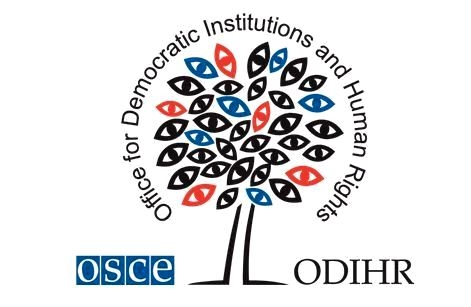Свобода от пыток
Коалиция гражданского общества против пыток и безнаказанности в Таджикистане

Vienna, 10-11 April 2014
National Preventive Mechanisms (NPMs) welcome Switzerland’s decision to place the issue of torture prevention back at the top of the OSCE’s political agenda and devote a Supplementary Human Dimension Meeting to this crucial human rights issue.
The following recommendations to OSCE participating States, the OSCE/ODIHR and the Swiss Chairpersonship-in-Office were developed by NPMs from 17 countries within the OSCE region during a pre-meeting, 9-10 April in Vienna.
All OSCE participating States should:
1. Ratify the Optional Protocol to the UN Convention against Torture (OPCAT) and establish a NPM, in accordance with the OPCAT requirements. All NPMs should have their mandate, powers and independence enshrined in national law.
2. Ensure full on-going government cooperation and dialogue with NPMs and the UN Subcommittee on Prevention of Torture (SPT) to achieve progressive improvements in detention policy and practice and the NPMs’ ability to carry out their preventive mandate.
3. Ensure unimpeded and immediate access to all places of detention, including those outside of their territorial jurisdiction but under their effective control, where people are or may be deprived of their liberty, whether managed by public or private institutions. Information on NPMs’ members and their mandate should be made available to all detaining authorities.
4. Ensure financial independence of NPMs to operate effectively, including providing them with adequate financial resources and ring-fencing their budgets if they are part of another larger budget.
5. Improve knowledge of detaining authorities and persons deprived of their liberty of the NPMs’ preventive mandate and torture prevention in general, including through seminars or training.
6. Systematically publish NPMs annual reports, and SPT and European Committee for the Prevention of Torture (CPT) visits reports and make all efforts to translate and make them available in the main national language(s) as soon as possible.
7. Ensure that national legislation requires authorities to respond to NPMs recommendationsand establish an effective mechanism, composed of relevant State agencies, international organisations, civil society experts and the NPM, to follow up on NPMs’ and other monitoring bodies’ recommendations.
8. Ensure that persons deprived of their liberty are aware of their rights, including access to legal and medical assistance, freedom from torture, not to be forced to make confessions and their right to redress for any violations they may suffer.
9. Ensure that the health care of persons deprived of their liberty is overseen by relevant public health authorities.
10. Use detention as a measure of last resort, and when persons with special needs are detained, ensure that they have access to appropriate facilities and services. Detaining authorities should be trained on how to recognize the need of persons in situations of vulnerability, including victims of human trafficking.
11. Ensure that the rights of persons accused or convicted of national security and terrorismrelated offences are fully respected.
12. Collect and publish data on the composition of the detained population, including those with special needs and characteristics, in order to inform action to reduce risk of torture and other ill-treatment.
13. Prioritise changing the culture of policing, through on-going training of police regarding evidence-based investigations and control of use of force. States should ensure the accountability of all ranks of law enforcement officials, including by taking actions in response to allegations and convictions of torture and ill-treatment.
OSCE/ODIHR should:
14. Support networks and regular peer-to-peer exchange of experiences, information andpractices between NPMs in the OSCE region, with involvement of the SPT, and relevant regional bodies when appropriate.
15. Support training programmes for NPMs, with the involvement of SPT and regional bodies, to ensure minimum standards and common methodology in detention monitoring, including on thematic issues and specific places of deprivation of liberty, such as psychiatric institutions.
16. Highlight torture prevention, including NPMs’ recommendations, in OSCE/ODHIR reports on country situations and other activities.
17. Conduct a survey on the impact of NPMs’ recommendations in the OSCE region on national and regional jurisprudence.
18. Facilitate continuous training and review of curricula for law enforcement officials regarding evidence-based investigations and control of use of force. Training should include modules on how to recognize and respond to the needs of persons in situations of vulnerability.
19. Support States in ensuring accountability for all ranks of law enforcement officials, including by monitoring the functioning of complaint mechanisms.